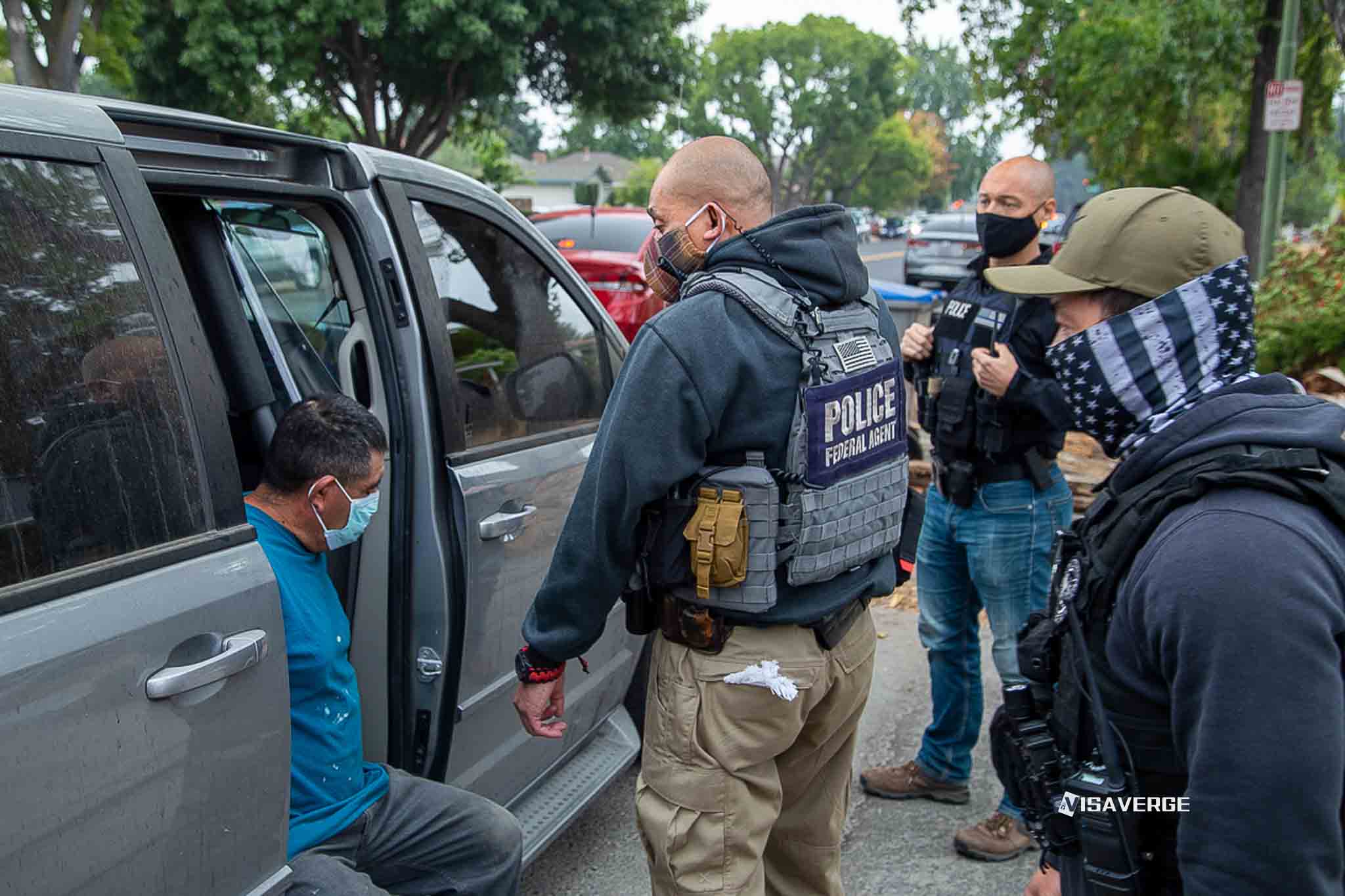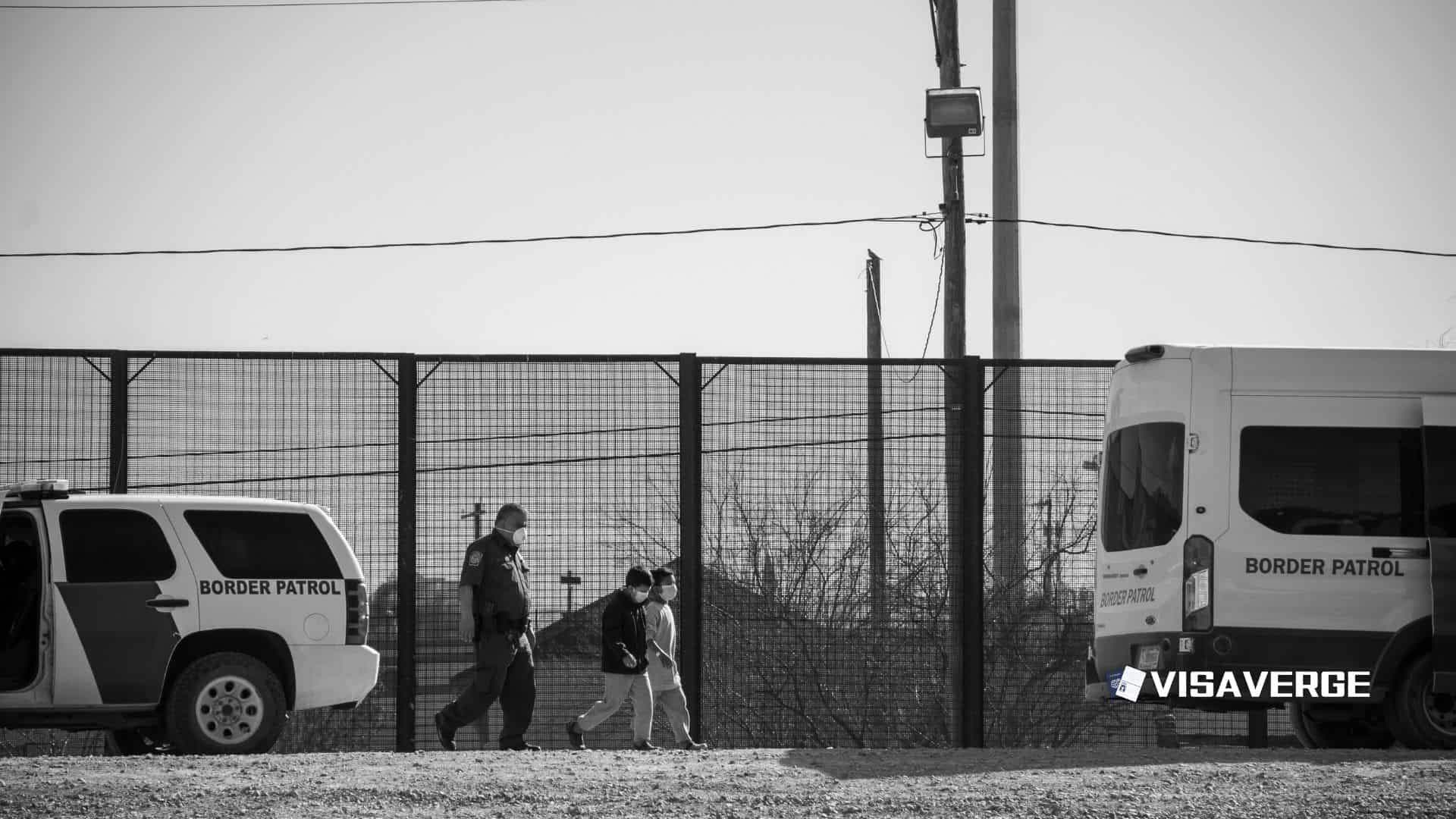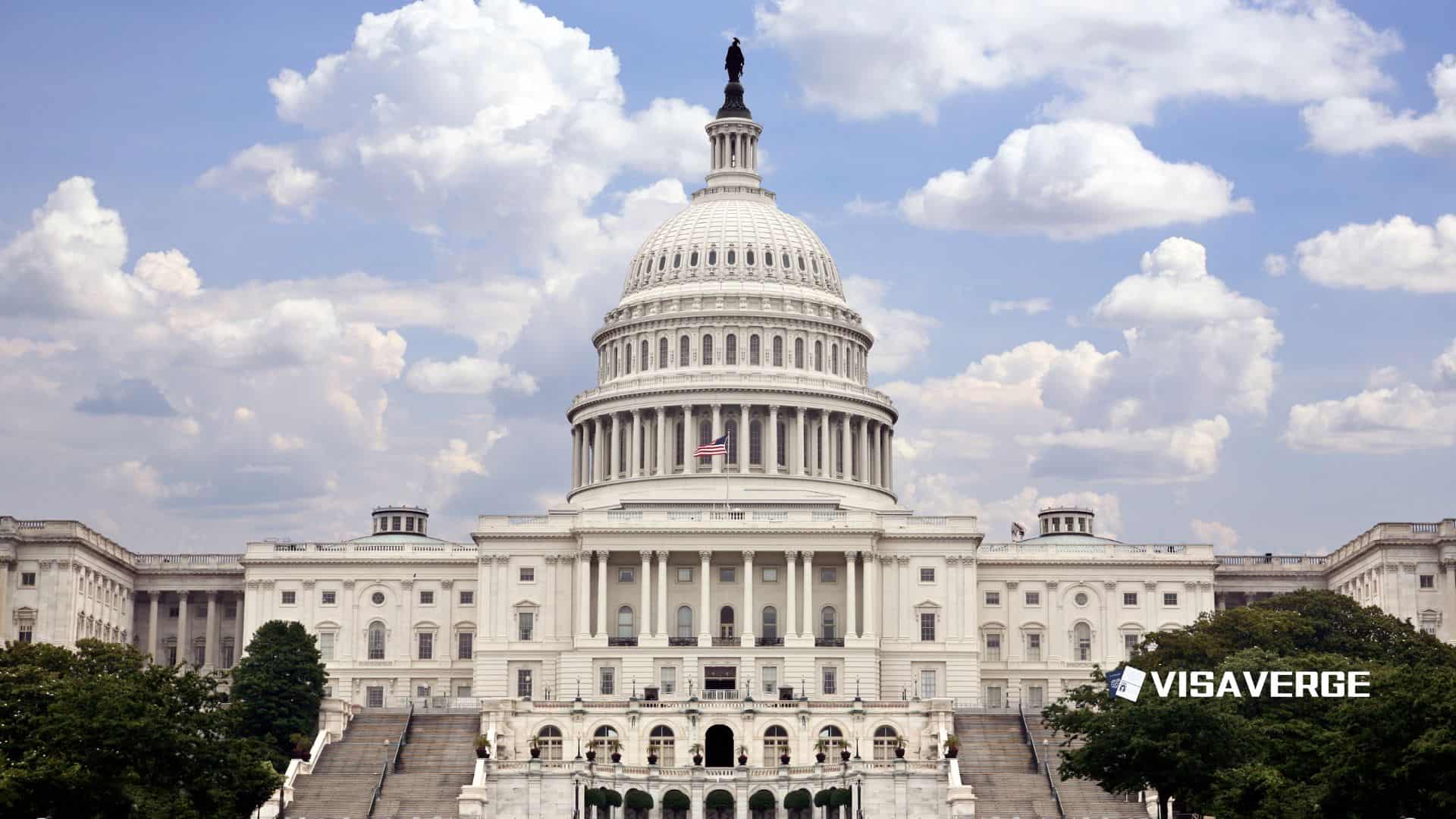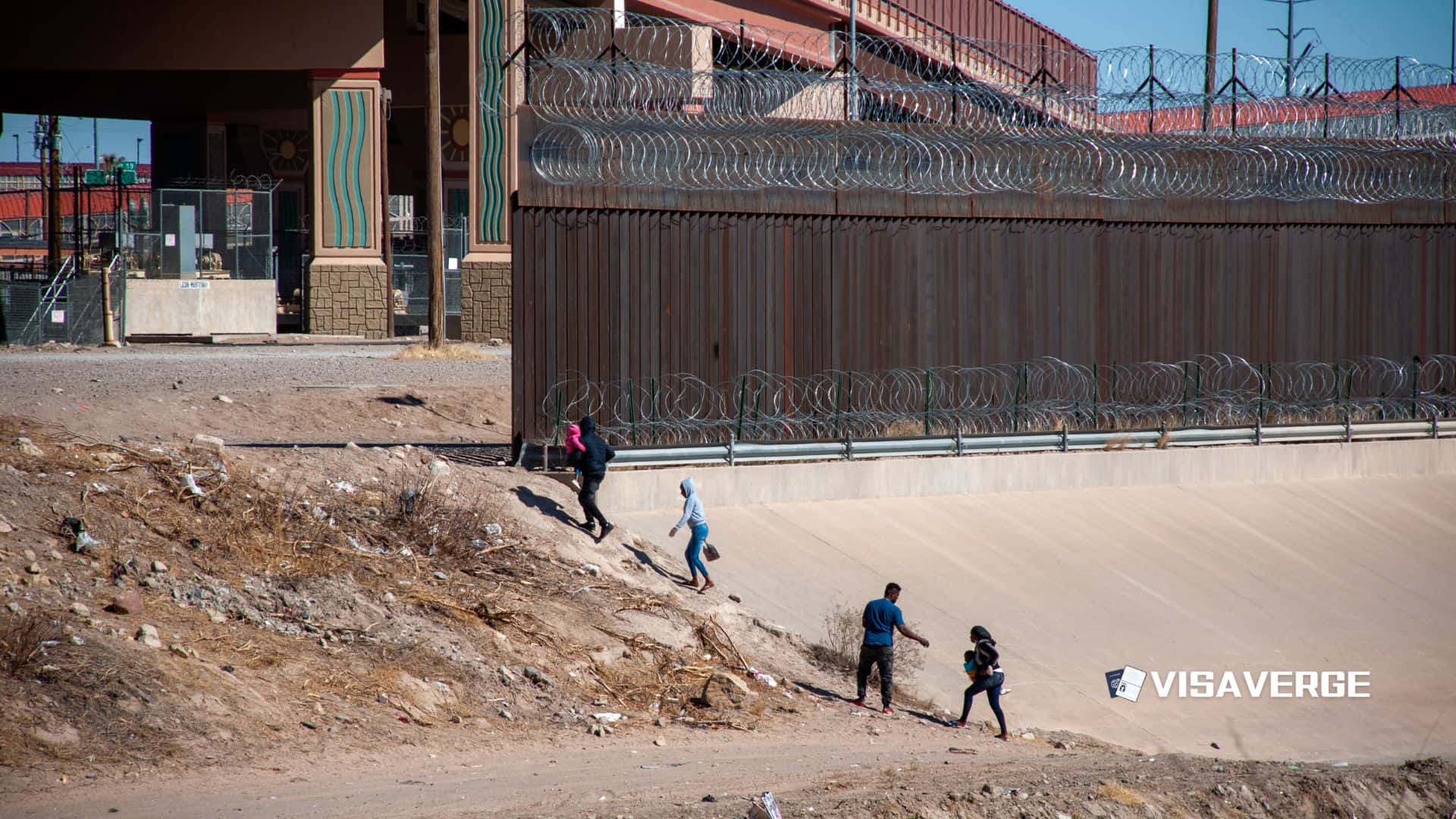(UNITED STATES) Nearly 200,000 Ukrainians living in the United States now face losing their legal status after the Trump administration sharply slowed and at one point suspended processing renewal requests under the Uniting for Ukraine program, throwing families into deep uncertainty and pushing some to leave the country on their own.
Background: what Uniting for Ukraine was meant to do
The program, created by President Joe Biden in April 2022, allowed about 260,000 Ukrainians fleeing Russia’s invasion to enter the United States for an initial two‑year period of humanitarian parole. That status granted the right to:

- Live and work lawfully
- Enroll children in school
- Access some public services
For many, Uniting for Ukraine was intended as a temporary but safe bridge until return to Ukraine or a longer‑term option became possible.
What changed since January 2025
Since January 2025, after Donald Trump returned to the presidency, the administration suspended processing applications and renewals for Uniting for Ukraine, citing unspecified “security considerations.” The suspension, followed by only a partial reopening, created long delays and a growing backlog.
- As of March 31, 2025, nearly 200,000 Ukrainians were at risk of falling out of legal status because their initial two‑year parole was expiring and renewal decisions had not been made.
- The administration even considered fully revoking parole for Ukrainians, according to people familiar with internal discussions, but stopped short of that step.
- A federal judge ordered the government in May 2025 to resume renewal processing, finding that a complete freeze went too far.
- Since the freeze was lifted, only about 1,900 renewal applications have been approved — a tiny fraction of those waiting.
Key data at a glance
| Item | Figure |
|---|---|
| People who entered under Uniting for Ukraine | ~260,000 |
| At risk of losing legal status (as of 3/31/2025) | ~200,000 |
| Renewal approvals since lift of freeze | ~1,900 |
| Program start | April 2022 |
| Administrative suspension began | January 2025 |
| Court order to resume processing | May 2025 |
Human and community impact
Behind these numbers are people trying to hold on to basic stability.
- Many had built lives as construction workers, food delivery drivers, taxi/rideshare drivers, truckers, and software engineers.
- When parole expired due to stalled renewal decisions, their work permits lapsed. Employers, fearing penalties, often removed them from schedules.
- Health insurance was frequently lost along with jobs. Some landlords demanded updated documents and signaled leases might not be renewed.
- People report avoiding hospitals, public transit, and even driving to work for fear a traffic stop could lead to detention.
“People followed the rules, applied for renewal, and expected a decision before their status ran out. Instead, the suspended processing period and later delays left them in a gray zone.”
— Summary of advocates’ and lawyers’ accounts
Detentions, self‑deportation, and migration choices
The fear of enforcement is real and has produced concrete outcomes:
- Some Ukrainians have been detained during immigration enforcement actions, including worksite raids and street arrests.
- Once detained, individuals can face fast‑moving removal proceedings with limited time or resources to find legal help.
- At least six Ukrainians interviewed by Reuters chose to “self‑deport” rather than wait to be arrested.
- One example: Yevhenii Padafa, a software engineer, tried to renew his status but, after months of delay, left for Argentina hoping to rebuild life there. His exit was complicated by a government travel app that limited options and made booking flights difficult.
- Others moved to Canada, European countries, or South American nations with more open paths for Ukrainians.
Community responses and local strains
Within Ukrainian communities (e.g., New York, Chicago, Philadelphia):
- Word of mouth urges caution: avoid large gatherings, skip nightlife, keep documents close, think twice before answering the door.
- Community centers that once offered English classes and job fairs now run know-your-rights workshops and emergency planning sessions.
- School districts face the possibility that enrolled Ukrainian students could vanish mid‑year if families leave to avoid detention.
- Employers, hospitals, and clinics report disruptions: training investments at risk, patients skipping appointments, and uncertainty about workforce continuity.
Legal, advocacy, and government responses
- A federal judge ordered resumption of renewal processing in May 2025, but approvals have been extremely slow.
- Immigrant rights organizations have pressed for:
- Clearer guidance from authorities about what “security considerations” mean
- Automatic extensions of parole and work authorization while renewal requests are pending
So far, there has been no broad policy to automatically protect all affected Ukrainians.
- According to U.S. Citizenship and Immigration Services, Uniting for Ukraine remains in place on paper, though applicants’ experiences reflect delay and fear.
Broader policy context
The Trump administration signaled that tighter controls may extend beyond Uniting for Ukraine, affecting humanitarian parole and work permits more broadly.
- The U.S. Citizenship and Immigration Services director appointed under Trump has indicated plans to make work authorization harder to qualify for and more expensive.
- Analysis by VisaVerge.com suggests these plans fit a wider strategy to reduce temporary protections and limit access to lawful employment for those arriving on emergency or humanitarian grounds.
- Parole programs for people from Cuba, Haiti, Nicaragua, Venezuela, and Afghanistan have also faced slowed processing or tightened rules — a pattern civil rights groups and immigration lawyers say uses security language to disguise a broader crackdown.
What choices do affected families face?
For those trying to remain in the U.S., options are limited and slow:
- Potential paths include family‑based routes, employment‑based visas, or asylum, but these are:
- Complex
- Time‑consuming
- Subject to existing backlogs prior to the 2025 suspension
- Many must decide whether to:
- Keep waiting in legal limbo
- Start over in another country
- Risk returning to parts of Ukraine despite ongoing danger
Lawyers report some clients contemplate returning to western Ukraine despite risks because living without clear status in the U.S. feels untenable.
Grassroots support and coping strategies
Ukrainian communities and volunteers have mobilized to help:
- Organize legal consultations and share information about employers willing to keep workers on payroll during documentation uncertainty
- Collect emergency funds for families without income
- Use churches and community centers as hubs to swap information and plan responses to enforcement actions
Closing reality check
As 2025 continues, the gap between the original promise of Uniting for Ukraine and current reality widens. The program — introduced as a swift humanitarian response when images of bombed Ukrainian cities dominated media — now sits at the center of a slow‑moving crisis for nearly 200,000 Ukrainians.
For these families, Washington’s debate over parole policy and security is not abstract. It can mean:
- Staying together or being split across continents
- A steady paycheck or sudden job loss
- Signing a lease or sleeping on relatives’ couches while decisions hang in the air
The future of Uniting for Ukraine, and of the people who trusted in it, will depend not only on court orders and administrative memos but on whether the government treats this as a paperwork issue or a human crisis unfolding in real time across communities throughout the United States.
Uniting for Ukraine offered two-year humanitarian parole to about 260,000 Ukrainians beginning April 2022. In January 2025 the administration suspended processing of new applications and renewals citing security concerns, creating a backlog that put nearly 200,000 people at risk by March 31, 2025. A court ordered resumption in May 2025, yet only about 1,900 renewals were approved. The pause harmed employment, health coverage and schooling, prompting detentions, self-deportations, and community strains.













